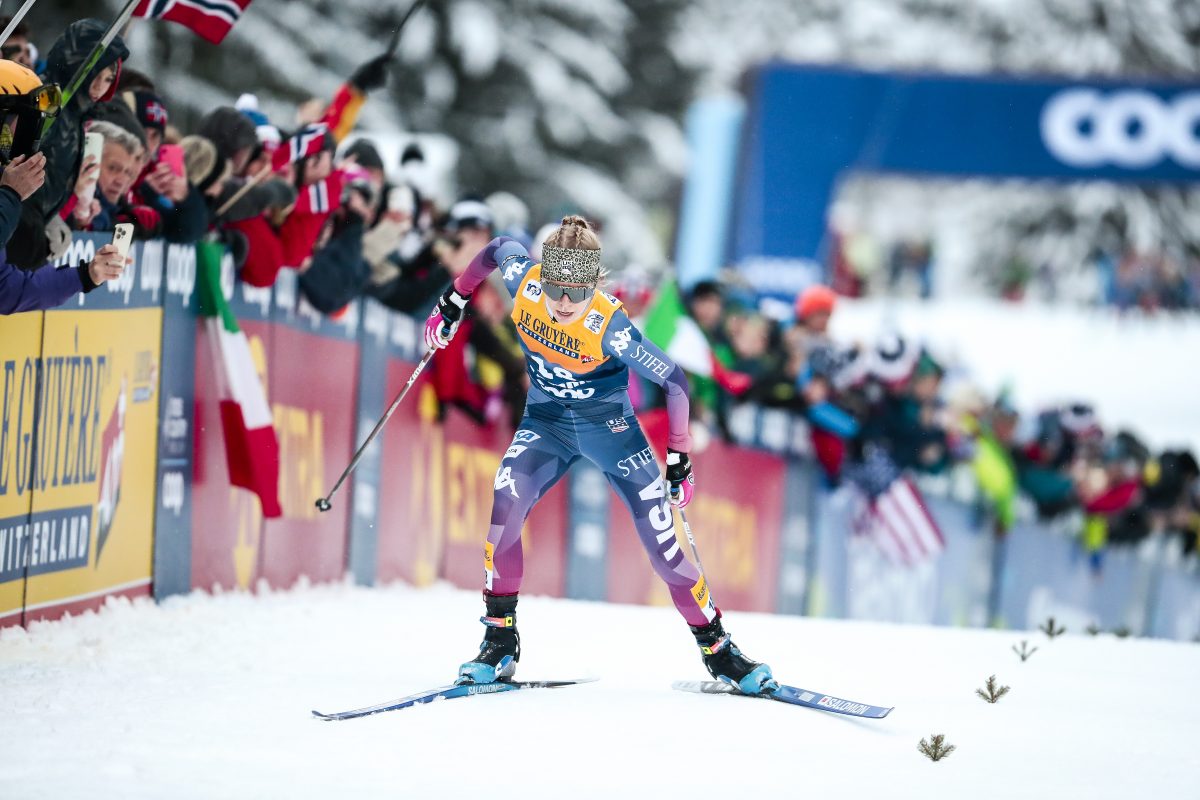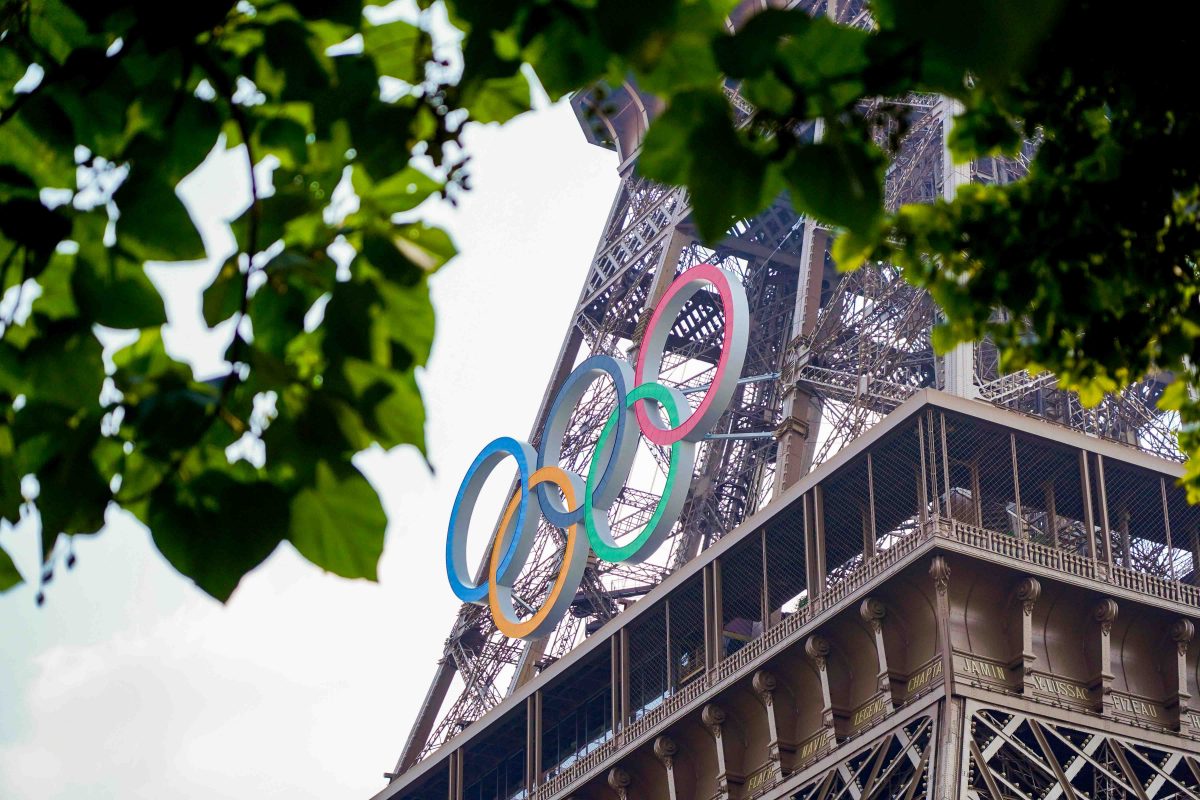This interview originally appeared in Przeglad Sportowy, Poland’s oldest sports daily. It was translated, with permission, by Aleksandra Zakrzewska, a Vermont-based biathlete who will represent the U.S. at the Youth Olympic Games this winter.
Norwegian biathlete Ole Einar Bjørndalen is one of the most successful winter athletes in history – after sweeping all four races at the 2002 Olympics in Salt Lake City, he seemed to be on a sure track to surpass Bjørn Dæhlie as the most decorated Olympian of all time. He hasn’t done it yet, but has remained at the top of his sport for an amazingly long period of time; in a twenty-year career he has picked up 92 World Cup victories along with 71 additional podium finishes. And he’s still got it. Last season, Bjørndalen stood on the World Cup or World Championships podium eight times. He has committed to competing through the 2014 Olympics.

PS MAGAZINE: Do you like interviews?
OLE EINAR BJØRNDALEN: Sure! Let’s do it.
PS: Do you still feel like racing? How many times have you competed in the World Cup?
OEB: I don’t even know. It’s hard to count. I may have trouble with the math, but I have no lack of motivation. I just like biathlon. I like to train and always strive for improvement. I think that my motivation comes from the very beginning of my life in sports. I come from a poor farming family- we didn’t have much money. My parents could not give me as much attention as I would have liked. They had so much other work to do, and I understood that. My brother helped me, but in poor families like that, you kind of have to help yourself. I tried some other sports, but it turned out that I had a huge talent for skiing and shooting, so I became a biathlete. I was twelve or thirteen and I wanted to become the World Champion. It was my dream. Today, I have done that, but I still want to win. I still have the motivation to be the best.
PS: You’ve been on the podium hundreds of times. Does it still feel the same?
OEB: It is always amazing and never normal, but now it will be a little different than before. Last season I had a lot of problems and it was hard for me. I felt tired and nothing was going right. On the other hand, because of that I am now hungry for wins. I think that when I return to the podium, I’ll get a new, different taste of victory. It will be beautiful again. I’m sure of it.
PS: I’m asking because your rival from the Norwegian team, Emil Svenden, said that Bjørndalen is done.
OEB: I know about that, but that is his problem, not mine. Ask him what he was thinking and why. I do not think that is true. Anyway, biathlon is a sport that takes place between the start and the finish line, on the course and at the range, not during interviews. I am not fazed by what he said.
PS: When will you stop competing? Will the Olympic Games in Sochi be that exit point?
OEB: Sochi will definitely be an important point for me, but will it be time to say ‘enough’? I’m not sure. We will see— maybe I will continue to race.
PS: Until the next Olympics?!
OEB: Probably not that long. I would be 44 years old then, and that is probably too much. I can still race for a season or two after the Olympics. I really love biathlon. I also have good health that allows me to do it. This spring, I had issues with my back, but that is the past now. On that note, I was cutting a tree. I thought I could do it, but I got injured and lost several weeks. Turns out that I’m capable only of doing biathlon. So now I am training, and I can cut trees after the season is over. Or I’ll hire someone to do it for me …
PS: Biathlon is currently the number two sport in Norway, after nordic skiing?

OEB: Today yes, but until recently it was definitely number one. That changed after the World Ski Championships in Oslo. And it’ll change again after the Biathlon Championships this year. You will see. But since we are talking about Nordic … now, Norway has a fantastic team with Petter Northug at the head. He changed everything. There is also Marit Bjørgen and Therese Johaug, but they are nowhere close to Petter. Northug is really extreme. He is one of a kind.
PS: Who is most popular in Norway today: You, Northug, or even Bjoergen?
OEB: That depends on who you ask. The older ones will choose me. The younger will say it’s Petter. Currently, Northug is a bigger name than mine. He has a fantastic season behind him.
PS: You successfully competed in some Nordic races. Will there be more such starts?
OEB: Definitely not in this season, but I will return to that next year.
PS: You wouldn’t want to become a permanent Nordic skier?
OEB: No. Nordic skiing is terribly boring. It cannot even compare with biathlon. In Nordic, even before the race, you can guess who will win, and you will have a very high chance of being right. With biathlon, everything can change in an instant. You can come into the range first and leave it close to last. Or the other way around.
PS: Since we are discussing Nordic, let us talk about asthma medication.
OEB: I knew you were going to ask about that. (He laughs). But fine, no problem. It was a loud topic in Norway, as well. I read about the discussion between Justyna Kowalczyk and Marit Bjørgen. My knowledge of the topic just is not that extensive. I had my lungs tested. If you train hard in the winter, your lungs shrink and you can get asthma. It usually happens after ten to twelve years of training. Mine have not followed that rule and somehow have not shrunk. They are one hundred percent functional. I never needed any medication. Even my doctor said that it is not quite normal, because apparently everyone has that problem. I just take care of myself well. Either way, I have never used asthma medication.
PS: Can using it give an advantage?
OEB: I can only repeat what doctors say: that they even out the playing field, but cannot make you any better. I know that this is still controversial, though.
PS: Exactly.
OEB: But let’s agree—this is not just a Polish-Norwegian discussion.
PS: I am not saying that it is.
OEB: This is a topic of discussion for athletes from every country with the anti-doping agency- WADA. Kowalczyk works with them, does tests and so on. I am just saying that there is no use of making this a conflict between just two athletes, because that is not what it is about. There are rules and it is hard to fight them. I don’t like asthma medication, because it is not normal. Doping or not … I think that there are many other medications that give athletes more of an advantage then asthma meds. As for Marit, however, without the medicine, she would have no chance.
PS: Precisely…
OEB: Yes, but she also has enormous talent and she trains really hard. And the asthma debate does not just concern her.
PS: So let’s talk about another Polish athlete popular in Norway.
OEB: Adam Małysz? I don’t know him personally, but I have seen him jumping on television. I heard that he wants to start in the Dakar Rally. You know what? I myself am interested in motor sports and other events like the Dakar. Maybe one day I will try it, too. For Adam it is probably a good idea for continuing his career, though … Honestly, he stopped jumping too soon. He was still very strong!
PS: You really think he could have jumped farther?
OEB: How old is he?
PS: Almost 34.
OEB: So he could have kept jumping a few more seasons! Until the Games in Sochi definitely. He would have been able to podium, since he was doing so well now. Maybe he will still change his mind and return to the jumping hill. You would all surely be happy.
PS: Do you know any other Polish athletes?
OEB: I know of Robert Kubica, but also not personally. He was a representative of the watchmaker Certina, like I am now.
PS: Supposedly you collect watches.
OEB: I have over thirty of them. But my contract with Certina is great for me… I now have a watch with my own autograph. You know, I wanted a sponsor whose product I could identify with. Other watch makers gave me offers, but I did not like them, and I can’t pretend. I wanted to associate myself with someone full of conviction. Somehow, it matters.
PS: Ole Einar Bjoerndalen always runs like clockwork.
OEB: If you say so …



